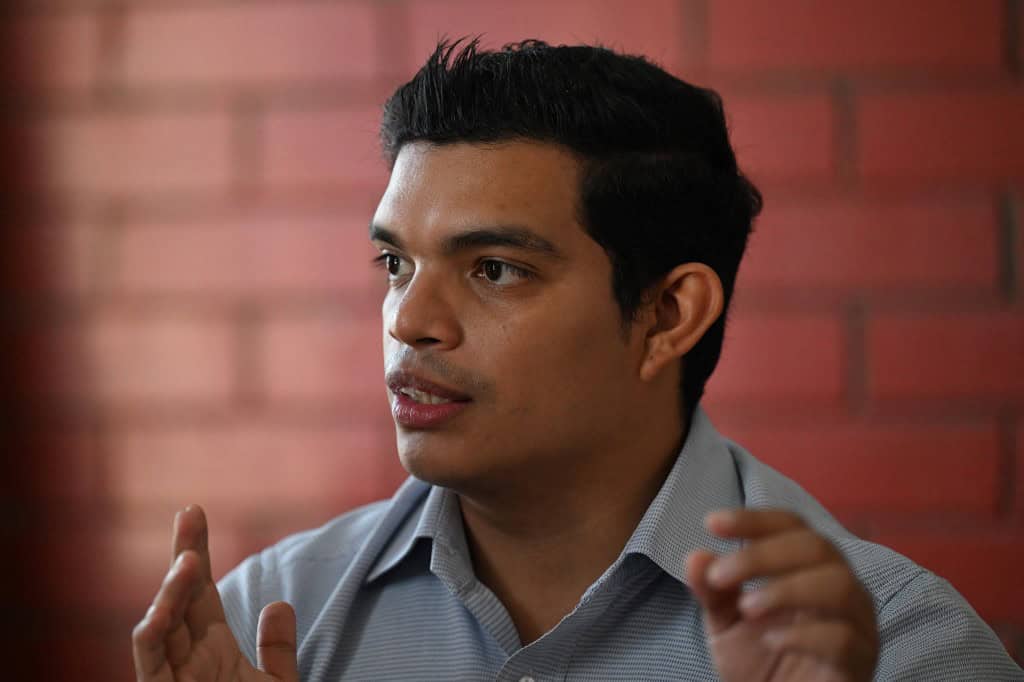Amnesty International (AI) on Wednesday issued a strong call to Salvadoran authorities, demanding they ensure the “physical integrity” of human rights activist Fidel Zavala, detained alongside other community leaders on February 25, 2025, under charges that have sparked international concern. Zavala, a 30-year-old spokesperson for the Human Rights and Community Defense Unit (UNIDEHC), was arrested in an operation that has drawn condemnation from human rights groups for its apparent targeting of activists and whistleblowers critical of the Salvadoran government.
AI highlighted Zavala’s detention as “especially concerning,” noting his role as a witness and whistleblower who has publicly detailed torture and abuses within El Salvador’s penitentiary system. Having spent 13 months in pretrial detention on charges of “aggravated fraud”—from which he was acquitted—Zavala emerged as a vocal critic, alleging he observed beatings and other mistreatment of inmates during his imprisonment.
His accounts align with broader reports of human rights violations under the state of exception, a controversial policy initiated by President Nayib Bukele in March 2022 to combat gang violence. “Enough with arbitrary detentions and unjust criminalization!” AI declared, urging authorities to safeguard Zavala’s “physical and psychological integrity” and ensure a “fair trial with all due process guarantees” for him and his co-detainees.
The operation that led to Zavala’s arrest also involved the raid of UNIDEHC’s headquarters and the home of its director, lawyer Ivania Cruz, as well as the detention of over 20 leaders from the La Floresta community in San Juan Opico, approximately 40 kilometers north of San Salvador. According to the Salvadoran Attorney General’s Office (FGR), Zavala and the community activists face charges including “irregular commercialization of land parcels and illegal subdivisions,” allegedly harming multiple victims.
The FGR further accuses them of “illegal limitation of freedom of movement” and “illicit associations,” among other offenses. However, these charges have raised skepticism among observers, given Zavala’s history of political persecution and the timing of the arrests, which followed his outspoken criticism of prison authorities.
Additional context from human rights organizations sheds light on the significance of this case. On December 17, 2024, just over two months prior to Zavala’s arrest, the Committee in Solidarity with the People of El Salvador (CISPES) reported that 52 organizations from 16 countries had delivered a letter to El Salvador’s Human Rights Ombudsman, condemning the government’s ongoing harassment of Zavala.
This followed the reopening of his fraud case—despite his prior acquittal—prompting accusations of a coordinated effort to silence him after he filed a formal complaint against prison directors for torture, medical neglect, and corruption he witnessed firsthand. His detention on February 25 appears to escalate this pattern, with human rights advocates framing it as part of a broader crackdown on dissent under Bukele’s administration.
The state of exception, now in its third year, has been a cornerstone of Bukele’s “war” against gangs, resulting in over 78,000 detentions, many deemed arbitrary by human rights watchdogs. Amnesty International’s own reports, including a December 20, 2024, statement marking 1,000 days of the policy, document a “legacy of repression,” with patterns of torture, mass trials, and over 300 deaths in custody. Zavala’s case fits into this narrative, as his earlier imprisonment coincided with the policy’s early phase, and his activism since release has spotlighted its human cost—particularly for marginalized communities like La Floresta, where poverty and state violence intersect.
The FGR’s framing of the detainees as land fraud perpetrators contrasts sharply with narratives from human rights groups, suggesting a deliberate attempt to discredit their activism—a tactic critics say is common under Bukele’s rule. This divergence has fueled debate over the legitimacy of the charges and the broader implications for civil liberties in El Salvador.






